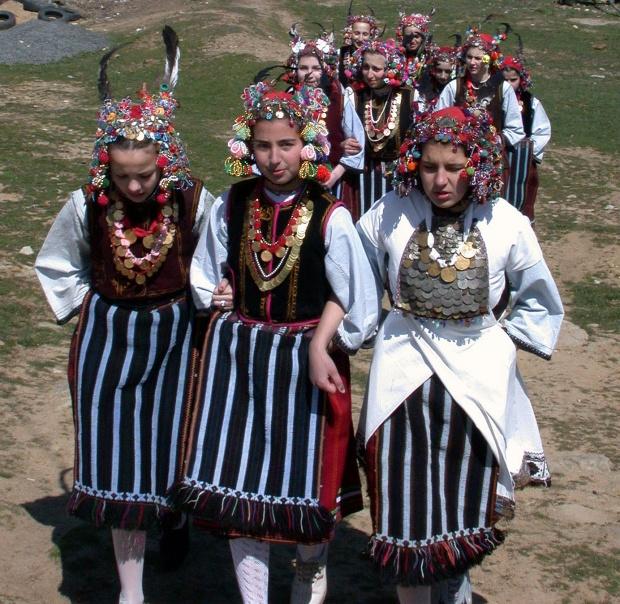St. Lazarus Feast (Lazarovden in Bulgarian) is one of the moveable feasts, because its date is set according to the date of Easter every single year, and is celebrated on the Saturday before Palm Sunday. In the gospels this is the day of the Raising of Lazarus, one of the miracles performed by Jesus Christ.
 In the Bulgarian popular tradition the feast of Lazaritsa, Lazarnitsa ot Lazarus Saturday is a stage in the transition from winter to spring, and also from death to life. In the Bulgarian mythology Lazarus is the lord of woods and bushes. He carries an axe and clears woods to make farming fields for peasants. He comes to bring a new beginning for nature and his gift for girls is marriage.
In the Bulgarian popular tradition the feast of Lazaritsa, Lazarnitsa ot Lazarus Saturday is a stage in the transition from winter to spring, and also from death to life. In the Bulgarian mythology Lazarus is the lord of woods and bushes. He carries an axe and clears woods to make farming fields for peasants. He comes to bring a new beginning for nature and his gift for girls is marriage.
This is the day of initiation of girls in pre-marriage age. With their heads decorated with green leaves, flowers and bird feathers aimed to bring luck, they tour the houses of the village and dance their Lazarus dances. In the traditional code, a girl who failed to take part in Lazarus girls' celebrations will never get married. It could be that a mountain dragon would come and take her away to marry her.
The ritual songs of Lazarki (girls who join Lazarus Saturday rituals) convey best wishes for health and fertility; they bless farmers, young girls and boys, young men, women and babies. The ritual tour of the village is meant to create a spirit of joy, celebration, luck and fertility in the community. Housewives would give white eggs and coins to girls. The eggs will later be painted for Easter. Drawing up a symbolic circle, Lazarki always return to the point where they have started. In the popular tradition the circle was ascribed with a powerful protective function.
English Daniela Konstantinova
In the Bulgarian folk tradition, the feasts of Lazarus Saturday and Palm Sunday are related holidays. From Lazarus Saturday (Lazarovden in Bulgaria), girls prepare for the ritual kumichene, which is performed on the morning of Palm Sunday. A very old..
In April and May the visitors of the Strelcha Historical Museum will have the opportunity to get acquainted with the traditions connected with the Easter holiday cycle through the exhibition A Fine Easter, a Finer St. George’s Day . Easter..
Lazarus Saturday is widely known in Bulgaria as Lazarovden , celebrated by Orthodox Bulgarians on the day before Palm Sunday. The main rite is the lazaruvane - a traditional custom centred on themes of love and marriage. Girls over the age of 16,..

+359 2 9336 661
